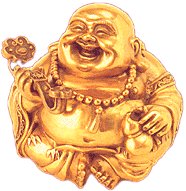|
|



|
|
HOME
Meditation What is Meditation? Power of Now Concentration & Insight Law of Attraction J Krishnamurti Tao Te Ching Dhammapada Buddhist Classics
|
Random Image
Meditation
What Is Meditation?
Conversation between Jiddu Krishnamurti
& Professor Allan W. Anderson
...continued from part one
Anderson: This raises an interesting question I'd like to ask you. Perhaps you'd be good enough to help me clarify this. Now, I've never personally undertaken meditation with respect to its ritual character in some traditions or its...
Krishnamurti: ...monastic.
Anderson: ...its monastic and radically methodical approach. I've read rather deeply in the literatures that have emanated from those practices. And I'm thinking for instance of what I've understood from my study of, what is called the hesychast tradition, where, what is called the Jesus prayer is uttered by the monks, particularly on Mount Athos, "Lord, Jesus Christ, have mercy upon me a sinner." This is repeated over and over with, as I understand it, the hope that someday it will become so automatic that, perhaps as a modern day depth psychologist would put it, the unconscious comes into possession of it, so that what I am doing, whatever that may be, is itself focused entirely on that prayer. The claim being that when this is achieved, when I no longer have to utter the prayer, in that sense, the prayer is uttering itself in me.
Krishnamurti: The same thing, sir, is expressed in India in a different way, which is mantra. You know that?
Anderson: Yes.
Krishnamurti: Repetition of a sentence or a word. And the repeating loudly first, then silently. Then it has entered into your being and the very sound of it is going on.
Anderson: Yes.
Krishnamurti: And from that sound you act, you live. But it's all self-imposed in order to arrive at a certain point. I, say for instance when you said the prayer which you just now repeated, "sin" - I don't accept sin. I don't know what sin is.
Anderson: I can just imagine the horror on the faces of those whose ears catch those words.
Krishnamurti: That means they are conditioned according to a belief, that there is a Jesus, that there is a sin, that they must be forgiven - all that. It is just carrying on a tradition.
Anderson: This speaks to me very personally. The basis for the decision that I made years ago not to do one of these things was embodied in your statement a little earlier, namely that it is expected that out of this word, or out of these words...
Krishnamurti: ...out of breathing, all that.
Anderson: ...will come somehow this permeation of my total being. And the question that arose for me at the time was, and I'd like you to clarify whether you think this question was correct, what arose in my mind was; the statement itself, whether the mantram or the Jesus prayer, is itself a finite expression.
Krishnamurti: Absolutely.
Anderson: Therefore, aren't I doing something strange here?
Krishnamurti: Yes.
Anderson: And if I somehow attain to anything that's worth attaining to it would probably be in spite of that rather than because of it. That perhaps was thinking about thought. But I didn't feel it at the time. I thought that I was making an intuitive response to it.
Krishnamurti: Quite.
Anderson: And therefore I simply wouldn't go ahead.
Krishnamurti: You wouldn't go ahead.
Anderson: Yes. Please go on.
Krishnamurti: Quite, quite right sir. So you see, all that implies that there is a path to truth - the Christian path, the Hindu path, the Zen, the various gurus and systems, there is a path to that enlightenment or to that truth or to that immeasurable something or other. And it is there, all you have to do is keep on keep on walking, walking, walking towards it. That means that thing is established, fixed, static, is not moving, is not living.
Anderson: It flashed into my mind the Biblical text in which God is described as the lamp unto my feet, and the light unto my path. It doesn't say he is the path. But rather he's the lamp...
Krishnamurti: ...to the path, quite.
Anderson: Right. As a lamp to the feet, and a light to the path. But it doesn't say that God is the path. That's very interesting.
Krishnamurti: Very.
Anderson: But maybe nobody really looks at those words closely.
Krishnamurti: You see, sir, how you are looking at it already. You see the truth of that statement. The feeling of it.
Anderson: Yes, yes.
Krishnamurti: So, that's one thing. Does meditation cover the whole field of existence? Or is it something totally apart from life? Life being business, politics, sex, pleasure, ambition, greed, envy, the anxiety, death, fear, all that is my life, living. Is meditation apart from that or does it embrace all that? If it doesn't embrace all that meditation has no meaning.
Anderson: Something just came to me that I'm sure would be regarded as incredibly heretical. But you know that the words of Jesus himself, "I am the way, the truth, and the life", when understood in the context of what has been revealed through these discussions we've had, takes on, in relation to something else he said an incredibly different meaning from what we've been taught. For instance, when he asks Peter who he is, that is, "Who am I, Jesus?", and Peter says, "Thou art the Christ, the son of the living God", he immediately turns to him and says, "Flesh and blood has not revealed this to you." Nothing to do with flesh and blood, "But my father which is in heaven", which he says elsewhere, is one with him. And he's one with the father. And then he prays in his prayer that the disciples be one with him as he and his father are one. That they all may be ONE. So if you look at that, I'm almost stuttering over myself because this, what I'm about to say, I'm aware of, theologically speaking, would be looked on as fantastical. When he says, "I am the way, the truth and the life", if it's seen in the context of that one as act, as act, then the whole business utterly is transformed. Isn't it?
Krishnamurti: Quite, quite.
Anderson: I'm going to be swallowing hard about that for a long time. Please go on.
Continue to next part...



Contact • Feedback • Typo • Privacy • Home